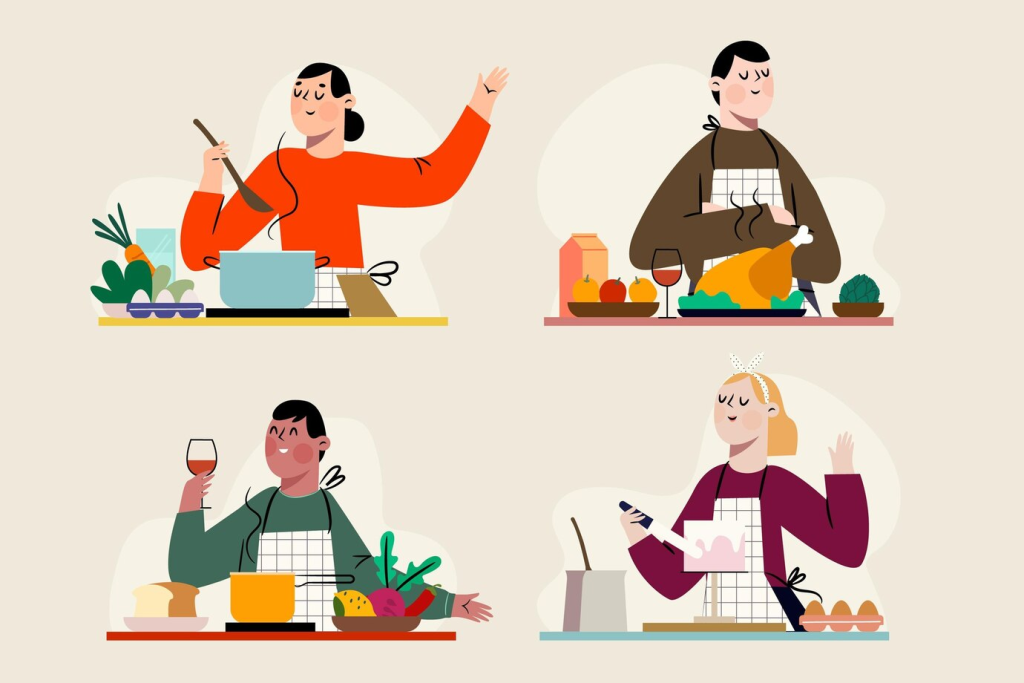Introduction
In a world driven by convenience and speed, slow cooking stands out as a quiet rebellion. It invites us to pause, savor, and reconnect—not just with food, but with the process itself. Whether it’s letting a soup simmer for hours or baking bread from scratch, these rituals help us rediscover patience and presence in the kitchen.

1. Why Slow Cooking Feels Different
Unlike quick meals, slow cooking transforms time into an ingredient. The gradual melding of flavors, the aroma that fills your home, and the hands-on care all create a deeper connection to what you’re eating.
Why It Works:
The extended cooking process enhances taste and brings intention back to the act of preparing food.
Pro Tip: Choose one day a week to prepare a slow-cooked meal as a ritual to unwind and reset.
2. The Mindfulness of Meal Preparation
Chopping vegetables, stirring a pot, kneading dough—these repetitive actions can become meditative when done slowly and with focus.
Why It Works:
Engaging with food physically and slowly reduces stress and brings you into the present moment.
Pro Tip: Put on calming music or cook in silence to heighten the mindful experience.
3. Slow Cooking Encourages Better Ingredients
When you cook slow, you often choose fresh, whole foods. This naturally leads to more nourishing meals, and builds a better relationship with what you’re feeding yourself and others.
Why It Works:
Quality ingredients shine through in slow dishes, and you learn to appreciate food at its most honest.
Pro Tip: Shop for ingredients mindfully at a local market to make the whole process more intentional.
4. It’s Not About Perfection—It’s About Process
Slow cooking is forgiving. It welcomes improvisation and doesn’t demand chef-level skills. It’s more about care than precision, and that’s what makes it charming.
Why It Works:
Letting go of perfectionism turns cooking into a creative, personal ritual instead of a chore.
Pro Tip: Try traditional recipes that take time—like stews, roasted vegetables, or slow-fermented dough—and enjoy the rhythm.
Conclusion
Slow cooking is more than just a method—it’s a mindset. In slowing down, we make space for intention, creativity, and joy. It’s a way of remembering that not everything needs to be rushed to be good. Sometimes, the most nourishing moments come from letting things take their time.
References
- Pollan, M. (2013). Cooked: A Natural History of Transformation. Penguin Press.
- The Kitchn (2023). Why Slow Cooking Still Matters. Available at: https://www.thekitchn.com
- Bon Appétit (2023). How Slow Food Practices Are Making a Comeback. Available at: https://www.bonappetit.com
- NPR Life Kit (2023). Rediscovering Patience Through Slow Cooking. Available at: https://www.npr.org









